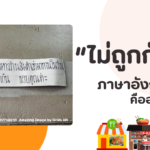| 如 | - (にょ) (n) {Buddh} (See 真如) tathata (the ultimate nature of all things) [EDICT]
- (ごと(如);こと(如)(ok);もころ(ok)) (n-adv) (See 如し) like; similar to; same as [EDICT]
- (rú, ㄖㄨˊ) as; as if; such as [CE-DICT]
|
| 果 | - (か) (n) (1) {Buddh} (See 因・2) phala (attained state, result); (2) {Buddh} (See 悟り・2) enlightenment (as the fruits of one's Buddhist practice); (3) (See 果物) fruit; (ctr) (4) counter for pieces of fruit [EDICT]
- (はたて) (n) (arch) end; limit; extremity [EDICT]
- (guǒ, ㄍㄨㄛˇ) fruit; result [CE-DICT]
|
| 那 | - (nǎ, ㄋㄚˇ) variant of 哪; how; which [CE-DICT]
- (nà, ㄋㄚˋ) that; those; commonly pr. nei4 before a classifier, esp. in Beijing [CE-DICT]
|
| 理 | - (り) (n) (1) reason; principle; logic; (2) {Buddh} (See 事・じ) general principle (as opposed to individual concrete phenomenon); (3) (in neo-Confucianism) the underlying principles of the cosmos; (P) [EDICT]
- (ことわり) (n) (See 道理) reason; truth; way of things; justice [EDICT]
- (lǐ, ㄌㄧˇ) texture; grain (of wood); inner essence; intrinsic order; reason; logic; truth; science; natural science (esp. physics); to manage; to pay attention to; to run (affairs); to handle; to put in order; to tidy up [CE-DICT]
|
| 论 | - (lún, ㄌㄨㄣˊ) the Analects (of Confucius) [CE-DICT]
- (lùn, ㄌㄨㄣˋ) by the; per; discuss; theory; to talk (about); to discuss [CE-DICT]
|
| 没 | - (ぼつ) (n,n-suf) (1) discard; (n) (2) death; (3) (没 only) (abbr) rejection (of a manuscript, etc.); (n-pref) (4) (没 only) lacking; without; (P) [EDICT]
- (méi, ㄇㄟˊ) (negative prefix for verbs); have not; not [CE-DICT]
- (mò, ㄇㄛˋ) drowned; to end; to die; to inundate [CE-DICT]
|
| 人 | - (じん) (suf) (1) -ian (e.g. Italian, etc.) (attaches to name of country to denote nationality); -er (e.g. performer, etc.) (attaches to name of occupation); (2) (usu. in compound words) man; person; people; (P) [EDICT]
- (と) (suf) person [EDICT]
- (にん(P);たり;り) (ctr) (1) counter for people; (n) (2) (にん only) (usu. in compound words) person; (P) [EDICT]
- (ひと) (n) (1) man; person; (2) human being; mankind; people; (3) character; personality; (4) man of talent; true man; (5) other people; (6) adult; (P) [EDICT]
- (rén, ㄖㄣˊ) man; person; people [CE-DICT]
|
| 指 | - (ゆび) นิ้ว [LongdoJP]
- (ゆび(P);および;おゆび) (n) finger; toe; digit; (P) [EDICT]
- (zhǐ, ㄓˇ) finger; to point; to direct; to indicate; to refer to; to rely on; to count on; (hair) stands stiffly on end [CE-DICT]
|
| 隐 | - (yǐn, ㄧㄣˇ) secret; hidden; concealed [CE-DICT]
|
| 私 | - (あたし(P);あたくし;あたい;あて) (pn,adj-no) (fem) I; me; (P) [EDICT]
- (あっし;わっち;わっし) (pn,adj-no) I (mainly used by working men); myself [EDICT]
- (わい;わて) (pn) (1) (arch) (ksb [EDICT]
- (わたい) (n) (arch) (ktb [EDICT]
- (わたし(P);わたくし(P)) (pn,adj-no) (1) I; me; (n,adj-no) (2) (わたくし only) private affairs; personal matter; secrecy; (3) (わたくし only) selfishness; (P) [EDICT]
- (わらわ) (pn,adj-no) (arch) (hum) (fem) I; me [EDICT]
- (わし) (pn,adj-no) (uk) I; me (used by elderly males) [EDICT]
- (sī, ㄙ) personal; private; selfish [CE-DICT]
|
| 权 | - (quán, ㄑㄩㄢˊ) authority; power; right [CE-DICT]
|
| 被 | - (ひ) (pref) indicates the target of an activity; -ee (e.g. employee, examinee, trustee) [EDICT]
- (bèi, ㄅㄟˋ) by (indicates passive-voice sentences or clauses); to cover; to wear [CE-DICT]
|
| 侵 | - (qīn, ㄑㄧㄣ) to invade; to encroach; to infringe; to approach [CE-DICT]
|
| 犯 | - (はん) (suf) perpetrators of (some) crime; (some type of) crime [EDICT]
- (fàn, ㄈㄢˋ) to violate; to offend; to assault; criminal; crime; to make a mistake; recurrence (of mistake or sth bad) [CE-DICT]
|







